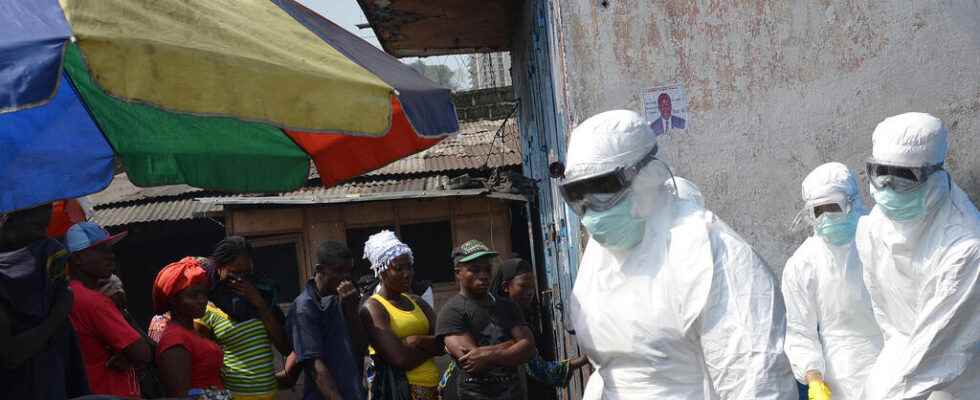In ten years, the number of cases of these diseases of animal origin transmissible to humans, such as monkeypox, has increased by 63% compared to the previous decade. Cases are likely to increase due to population growth.
“ We must act now to prevent Africa from becoming the epicenter of emerging infectious diseases “, called this Thursday, July 14 the World Health Organization during an online conference.
At least 75% of emerging infectious diseases are caused by pathogens of animal origin. Viral haemorrhagic fevers such as Ebola virus disease account for nearly 70% of these epidemics. The remaining 30% is made up of viruses such as monkeypox and dengue fever.
Diseases Without Borders
For Karim Tounkara, representative for Africa of the World Organization for Animal Health, this situation is explained by the encroachment of humans on land reserved for wild animals. ” Human activity has destroyed ecosystems and barriers between animals and humans, favoring the spread of zoonotic diseases, he details. These figures remind us that diseases ignore borders and barriers between species. »
The WHO recommends increased monitoring, starting with better vigilance in the consumption of bushmeat, suspected of being the cause of these diseases. “ When we consume this type of meat, we must take precautions, warns Matshidiso Moeti, WHO Regional Director for Africa. For example, wash your hands well to protect yourself against infection if you have skin lesions. It is also important to cook the meat thoroughly to ensure that any pathogens present are killed and the meat can be eaten. »
The role of communities
The WHO Emergency Committee is due to meet next Thursday to decide on the monkeypox outbreakand on his qualification “ public health emergency of international concern “. This infectious disease transmitted from animals to humans, and which manifests itself by fever, lymph nodes and sore throats, has already been detected in around sixty countries.
“ Africa needs the collaboration of all sectors, in human, animal and environmental health, working together with communities, explained Matshidiso Moeti, during the online conference. It is equally crucial to have reliable surveillance mechanisms in place to quickly detect pathogens and put in place strong measures to stop any potential spread. »
Finally, the doctor also warned of the social consequences that often trigger this type of disease, such as Ebola: “ We have seen with other communicable diseases that patients are stigmatized. This is one of the things that needs to be addressed in order to gain the cooperation of families and communities that are affected. So we have to watch our language and the way we talk about affected people or families, so as not to exacerbate the stigma. »
► Read also: Monkey pox: Africa has expertise to showcase
